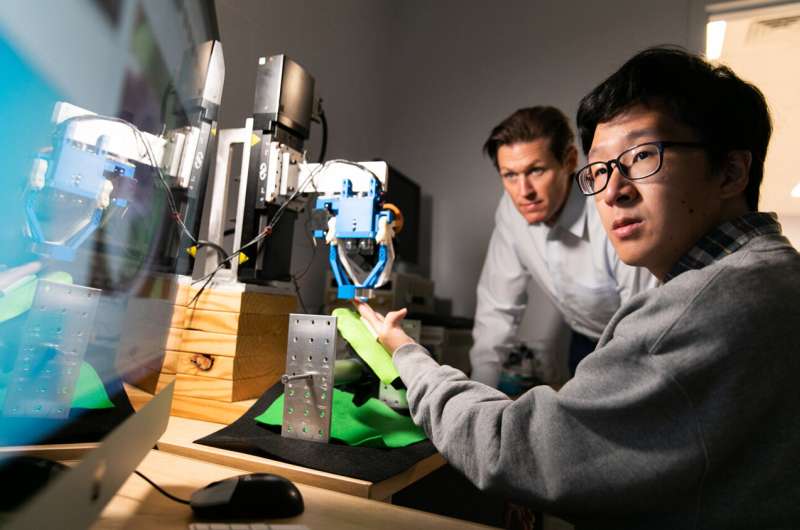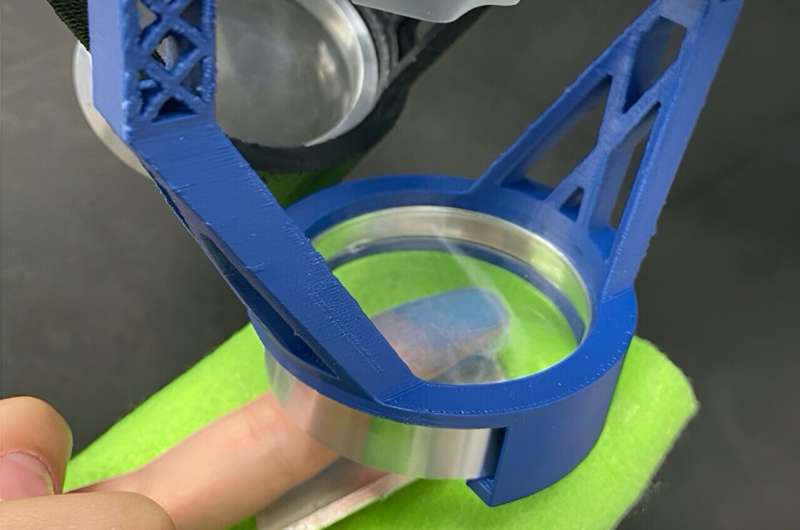This article has been reviewed according to Science X's editorial process and policies. Editors have highlighted the following attributes while ensuring the content's credibility:
fact-checked
peer-reviewed publication
trusted source
proofread
Researchers put a finger on why men and women feel touch differently

The lab of University of Virginia systems engineer Gregory J. Gerling recently made a discovery on a touchy subject: why women generally seem to have a more acute sense of touch than men.
"Basically, we confirmed women are better than men at touch discrimination—although not because they have smaller fingers, but because in general they have softer fingers," said Gerling, a professor in the School of Engineering and Applied Science.
The professor directs the Gerling Touch Lab at UVA. He is an expert in the science of touch technology known as haptics. When you press your smartphone screen and feel a vibration, for example, that's haptics.
In more recent months, his lab has created a new scientific instrument to directly observe the physical patterns that drive perception.
But demonstrating the "why" behind the gender difference, first published in November 2023 in the Journal of Physiology, continues to be a cited topic of interest, Gerling said. The insight could be useful as engineers develop softer sensor materials for wearable technology, improve prosthetics with a sense of touch, or design better interfaces for surgical robots.

Experimental design
Gerling and Bingxu Li, who earned her Ph.D. in systems engineering at UVA in 2023 and founded a company called SmartHap, enlisted 40 participants for their research.
The experimental design combined novel 3D imaging and biomechanical observations of skin and how it deforms when pressed, statistical analysis and machine learning, and experiments to test how the participants used touch to perceive objects.
They found that softer skin resulted in greater rates of change in surface contact with objects, which correlated with a greater ability to distinguish small changes in the objects' stiffness.
"The mechanism seems to be that attributes of surface contact control the recruitment of sensory nerve fibers in the skin" Gerling said.
For those who'd like to improve their touch perception, Gerling said, apply hyaluronic acid, an effective skin moisturizer and softener.
More information: Bingxu Li et al, An individual's skin stiffness predicts their tactile discrimination of compliance, The Journal of Physiology (2023). DOI: 10.1113/JP285271
Journal information: Journal of Physiology
Provided by University of Virginia





















